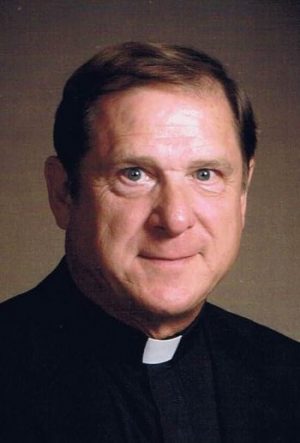Lent calls us to put God first in our lives

Father Michael Schaab
By Father R. Michael Schaab
Fourth Sunday of Lent/March 31
Joshua 5:9a,10-12; Psalm 34:2-3,4-5,6-7; 2 Corinthians 5:17-21; Luke 15:1-3,11-32
Year A (When the Rite of Scrutiny is held)
1 Samuel 16:1b,6-7,10-13a; Psalm 23:1-3a,3b-4,5,6; Ephesians 5:8-14; John 9:1-41
There are two options for the sets of readings this Sunday. One is used at Masses with a Rite of Scrutiny for catechumens who are preparing to enter the Church this Easter Vigil. The other option includes the Gospel about the Prodigal Son. Let us look at the second option first.
Used as an adjective, “prodigal” has two very similar but not identical meanings: “1. Spending money or resources freely and recklessly; wastefully extravagant. 2. Having or giving something on a lavish scale.” The first meaning describes the son who “squandered his inheritance on a life of dissipation.” The second meaning describes the father who welcomes his son back with the finest robe, a ring and a banquet. The son is prodigal in a negative sense while the father is prodigal in a positive sense.
It’s important to keep in mind that this parable is presented by Jesus in response to a complaint by the Pharisees and scribes that he “welcomes sinners and eats with them.” The focus in the parable is really on God who is represented by the father who loves his son even when his son turns away from him. The father provides an example of unconditional love for both the prodigal son and his older brother who comes in from the fields. The sons represent those who have rejected God’s love or are envious when they see God’s love lavished on others.
Jesus eats with sinners because he is the revelation of God’s love and he provides an example for us of how to live in that love. Those who complain that Jesus eats with sinners are like the older brother who complains that a banquet is being held for his wayward sibling.
The reading from 2 Corinthians applies the message of the parable to ourselves, for through this unconditional love “God has reconciled us to himself through Christ and given us the ministry of reconciliation.” It would be a shame to be content to use this parable as simply an invitation to contrition. It is that, of course, but it is also so much more.
The parable of the Prodigal Son entrusts to us the message of reconciliation. It is our commissioning as “ambassadors for Christ.” In it God is appealing to us to continue Christ’s “ministry of reconciliation,” and in this world there is an endless catalog of needs for reconciliation — anti-Semitism, racism, white supremacy, bigotry, etc.
SPIRITUAL EYE-OPENER
The optional readings for this Sunday present the long Gospel of the man born blind. For the catechumens who are preparing for full initiation into the Church, this Gospel is a challenge to examine their lives through the eyes of Christ, to scrutinize their lives in the light of the Gospel. Their initiation into the Church should be a real “eye-opener.” Their spiritual eyes should be opened so that they have a new perspective on the world and on themselves.
This could be an overwhelming challenge and lead a person to near despair if it were not for God’s promise to be with us as we live in this world with our spiritual eyes wide open. The Church uses Psalm 23 as the Responsorial Psalm. It tells us how God leads us, guides us, gives us courage and promises that we “shall dwell in the house of the Lord for years to come.” It’s that assurance that gives the catechumens, and all who are already members of the Church, the courage to persevere in examining ourselves and our world through the eyes of Christ.
A close reading of both these sets of readings brings one to the realization that Lent is really first and foremost a call to put God first in our lives. So often as we reflect on our sinfulness and brokenness we inadvertently make ourselves the center of Lent. These wonderful readings are meant to bring our focus back to God who unconditionally loves us, even in our sinfulness, and Christ who is the light of the world, even when it is at its darkest.
—
Father R. Michael Schaab is a senior priest of the Diocese of Peoria who gives retreats and days of recollection, and fills in as presider at parish Masses on weekends. He resides on a hobby farm in Putnam County.





